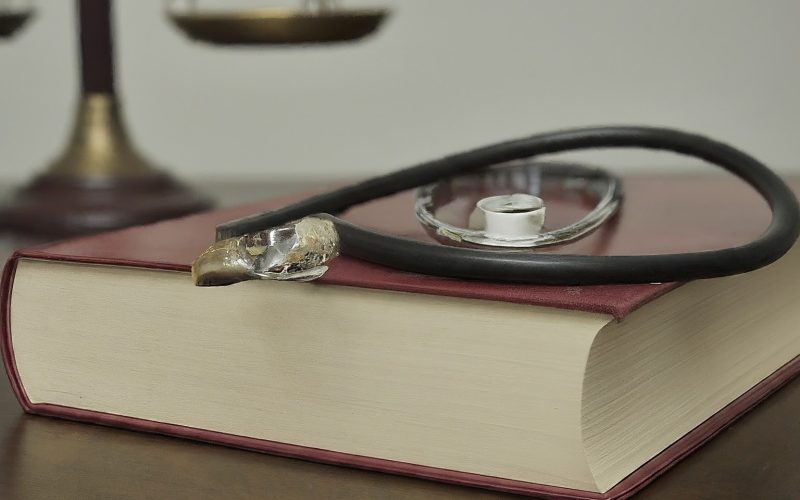Introduction
Dr. Sarah Jones, a seasoned family physician with over two decades of experience, holds the patient-doctor relationship in the highest regard. “Trust is the bedrock of good healthcare,” she stresses. Yet, recent headlines about questionable practices and potential conflicts of interest have left many patients wondering: Can I truly trust my doctor to have my best interests at heart?
This article, informed by Dr. Jones’ insights and drawing from the core ethical principles outlined by the American Medical Association (AMA), aims to empower you, the patient, with knowledge about medical ethics and potential risks. By understanding these principles and common red flags, you can navigate your healthcare journey with increased confidence and clarity.
The Doctor’s Oath: A Pillar of Medical Ethics
The medical profession has a long-standing tradition of ethical conduct, embodied in the Hippocratic Oath, a historical document outlining a physician’s duties. While the specific wording has evolved over time, the core principles remain relevant today, forming the foundation of modern medical ethics.
Key Principles of Medical Ethics: A Patient’s Guide
The AMA’s core ethical principles provide a framework for doctors to prioritize patient well-being. Here’s a breakdown of these principles to help you understand what to expect from your doctor:
-
Autonomy: This principle respects your right to make informed decisions about your care. Your doctor should explain your diagnosis, treatment options, and potential risks in a way that is clear and understandable. You have the right to ask questions, express your preferences, and ultimately, choose the course of action that aligns with your values and goals.
-
Beneficence: This principle compels doctors to act in your best interest and prioritize your well-being. Doctors should recommend treatments supported by scientific evidence and proven to be effective for your specific condition. Financial gain or industry ties should not influence their recommendations.
-
Non-maleficence: This principle emphasizes avoiding causing harm to the patient. Doctors should avoid unnecessary tests, procedures, or medications that carry significant risks with minimal potential benefits. They should also be transparent about potential side effects and complications associated with any treatment option.
-
Justice: This principle promotes fairness and equity in healthcare delivery. All patients deserve access to quality care regardless of background, insurance status, or socioeconomic factors. Doctors should strive to provide the same standard of care to all their patients.

When to Be Wary: Potential Conflicts of Interest
While most doctors strive to uphold these ethical principles, situations may arise where their judgment could be influenced by external factors. Here are some potential conflicts of interest to be aware of:
-
Financial incentives: Some doctors may receive payments from pharmaceutical companies for promoting certain drugs or treatments. This could lead to a bias towards prescribing brand-name medications over generic alternatives, even if the generic option is equally effective and more affordable.
-
Industry ties: Doctors may participate in research sponsored by pharmaceutical companies or medical device manufacturers. While this research can contribute to advancements in healthcare, it’s important to be aware that these ties could influence their treatment recommendations.
-
Gift-giving: Pharmaceutical companies may offer doctors free samples, meals, or other gifts. While seemingly harmless, these practices can create a sense of obligation that could subconsciously influence a doctor’s prescribing habits.
Red Flags to Watch Out For: Protecting Yourself
If you suspect a conflict of interest or unethical behavior, don’t hesitate to voice your concerns. Here are some red flags to watch out for:
-
Over-prescription of medication: Be wary if your doctor readily prescribes expensive brand-name medications without exploring generic alternatives or discussing the potential benefits and drawbacks of each option.
-
Unnecessary procedures: Question the need for any recommended test or treatment if it seems excessive or lacks a clear explanation for how it will benefit your specific condition.
-
Pressure to make decisions quickly: A good doctor should take the time to address your questions and concerns and ensure you feel comfortable with the recommended course of action. Be wary of doctors who pressure you into making decisions on the spot.

Effective Communication: Building Trust with Your Doctor
Open communication is vital for building trust with your doctor. Here are some tips to ensure clear and effective communication during your appointments:
-
Come prepared: Write down your questions and concerns beforehand. This will help you stay focused and ensure you cover everything that’s important to you.
-
Ask questions: Don’t hesitate to ask clarifying questions about your diagnosis, treatment options, and potential risks. The more informed you are, the better equipped you are to make informed decisions.
-
Express your concerns: Be upfront about your preferences and any doubts you have about the recommended course
-
Listen actively: Pay close attention to your doctor’s explanations and ask follow-up questions if needed.
- Bring a support person: Consider bringing a family member or friend to your appointments. They can take notes, help you remember information, and offer additional support.
Empowering Yourself: Resources and Support Networks
The healthcare landscape can be complex, but you don’t have to navigate it alone. Here are some resources available to help you become a more informed and empowered patient:
-
The American Medical Association (AMA): The AMA website provides a wealth of information about medical ethics, patient rights, and choosing a doctor https://www.ama-assn.org/.
-
The Patient Advocate Foundation: This non-profit organization offers resources and support for patients facing difficult medical decisions. They can help you understand complex medical information and advocate for your needs https://copays.org/.
-
Your state medical board: Each state has a medical board that licenses and disciplines doctors. Their websites often have information on how to file a complaint against a doctor if you suspect misconduct https://www.fsmb.org/.
Conclusion
By understanding medical ethics, potential risks, and effective communication strategies, you can become a more empowered patient and build a trusting relationship with your doctor. Here are some key takeaways:
- Doctors have a professional obligation to uphold ethical principles that prioritize your well-being.
- Be aware of potential conflicts of interest and red flags that may indicate unethical practices.
- Open communication is essential for building trust with your doctor. Don’t hesitate to ask questions and express your concerns.
- Empower yourself with knowledge and utilize available resources to navigate the healthcare system with confidence.
Remember, you are a partner in your healthcare. By taking an active role in your medical decisions, you can ensure you receive the care you deserve.










